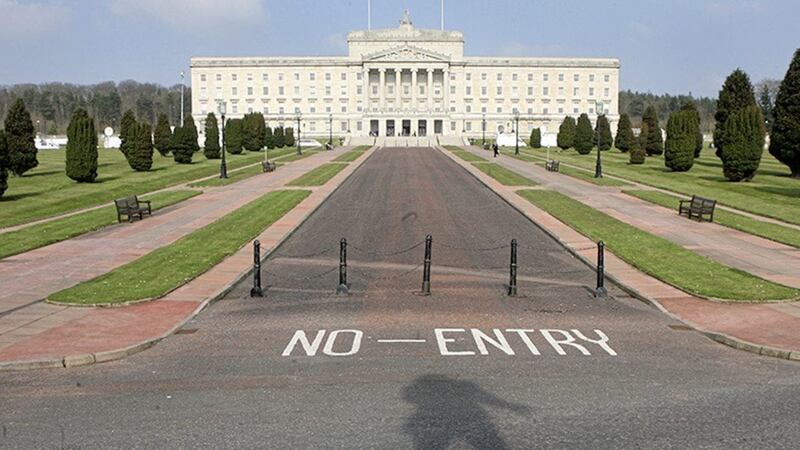There’s much talk among the commentariat about reform in assembly rules so that an executive could be formed which wouldn’t have to include all the main parties.
You can see why. The argument arises from frustration and annoyance, even anger, that either the DUP or Sinn Féin can collapse the whole shebang by walking out.
There’s also the matter of designation – nationalist or unionist – whereby, according to the rules agreed at St Andrews in 2006, even if the Alliance party came second in assembly seats and votes (which it won’t) Naomi Long couldn’t be deputy first minister. She’s an ‘other’ you see.
Lying behind these arguments is the desire, mostly of unionists, to have ‘normal politics’, to be just like, altogether now, ‘the rest of the UK’. Listen folks, there will never be ‘normal politics’ here because the north is an artificial construct. That’s the reason there’s a power-sharing executive which some people call a ‘mandatory coalition’. It’s not a coalition because the people running it never come together voluntarily as a result of a political deal, as for example in the south in 2020 or Britain in 2010 or Germany last November.
The sort of arrangement we have here is called ‘consociationalism’ which means bringing together the main communities in a region or state or country to run the place instead of one dominating the other. Variations of consociation operate in many regions divided like here by religion or language or both. They all continue to have trouble with the mechanics. Some are even more convoluted than here.
In Lebanon the president must be Christian, the prime minister a Sunni Muslim and the Speaker a Shia, and seats in parliament allocated by a very complex formula. Bosnia-Herzegovina is even more complex trying to accommodate Muslims, Serbs and Croats. Like Lebanon (and here) it’s always teetering on the brink. Also like here, Lebanon and Bosnia-Herzegovina are artificial constructs. So is Belgium where some of the ideas for our pantomime came from, and it doesn’t have a great record either. All the places with divided communities are inherently unstable. You just look to form the least worst system.
Now, you can argue all you like about designation/schmesignation and about increased diversity in the north (though it’s still about 98 per cent white) but when the votes are counted on May 6-7 something like 80 per cent will be for various versions of nationalism and unionism advocating various solutions for the political expression of Irish and British identity. That, and how to resolve it, is the supreme and overriding political matter at stake for the vast majority of voters. The argument that, say, Alliance gets 16 per cent of the vote, or that combined with the Greens and PBP, the ‘others’ total 21 per cent and should be treated the same as nationalist and unionist designation is meaningless in a consociational system. Separately or together they don’t represent either the cause of division or the voters on either side of the division: 43 per cent unionist and 37 per cent nationalist in LucidTalk’s recent poll.
In these circumstances what you can’t do, however annoyed and frustrated you feel, is construct a system whereby the largest unionist party or largest nationalist party is excluded in a futile quest for ‘normal politics’. It’s political naiveté.
Well dare the minor party of either nationalist or unionist designation join in an executive excluding the representatives of the majority of unionism or nationalism. Catch yourself on.
If the DUP are returned as the largest unionist party and refuse to enter an executive either because SF is entitled to be first minister or because the truth is they really oppose the Good Friday Agreement, then it may be time to look for a new post-Brexit settlement after the next British general election. By then the DUP will have demonstrated that the north won’t work/can’t work as a UK sub-polity.
Paradoxically unionists will have shown it’s time for a border poll.









